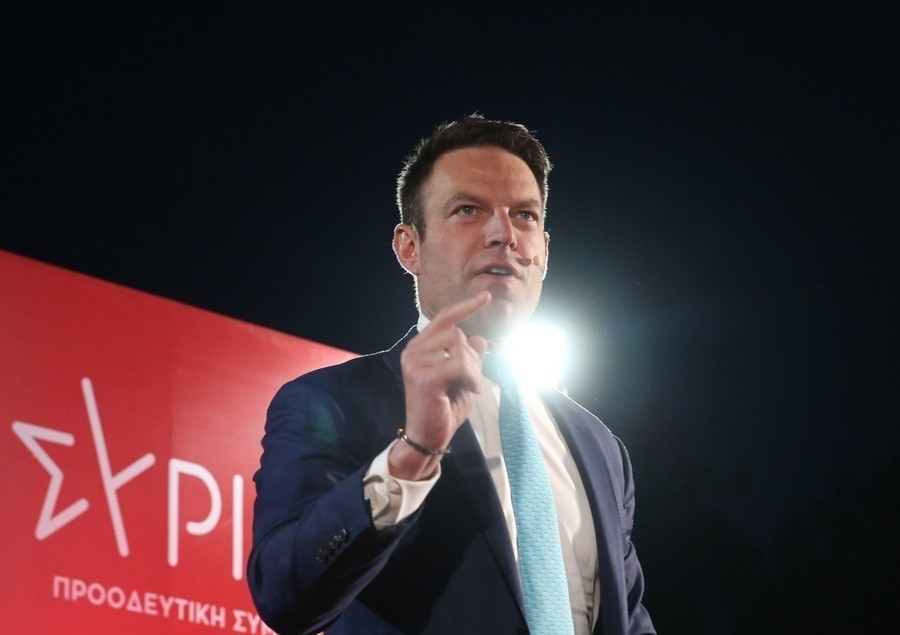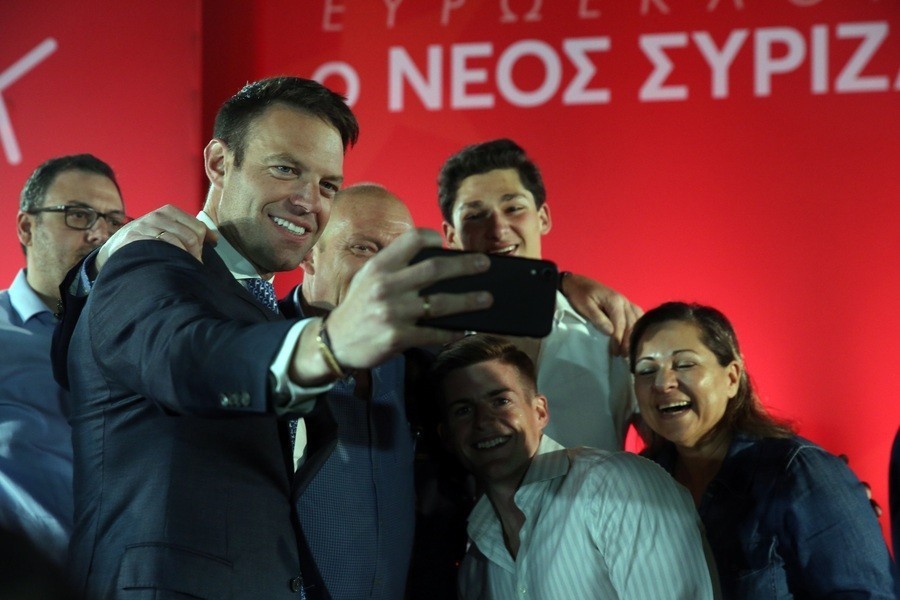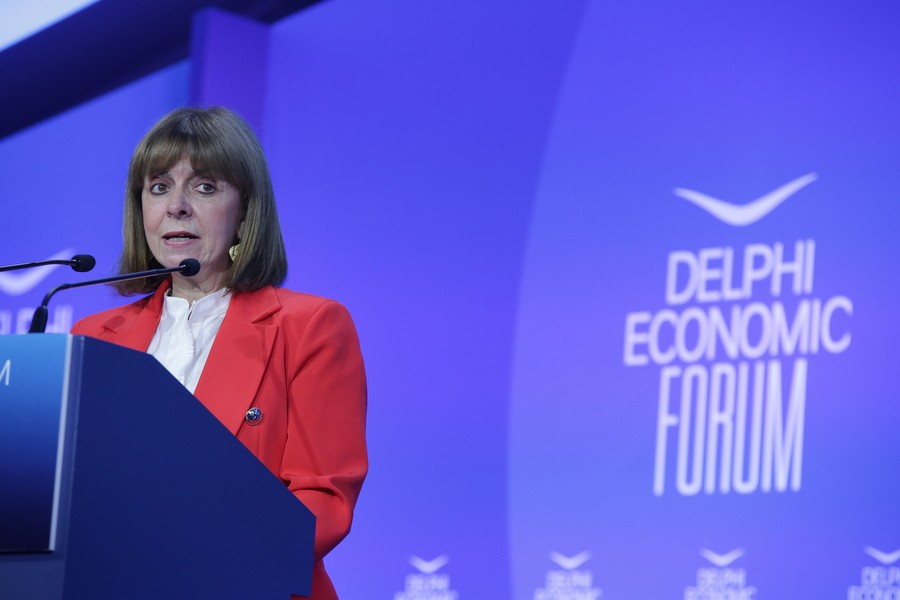
Greece goes to the polls, and Europe holds its breath
Greece just completed one of its shortest electoral campaign periods which — for the first time since 1964 — occurred right after the winter holidays. The polarized climate was coupled with the resounding absence of any concrete proposals for a wide array of issues such as pensions, public administration, national security and foreign policy — with the exception of Greece’s relationship with its creditors.
Despite the single-issue campaign over Greece’s debt and its relationship with the Troika, the intentions of certain parties remain vague and even obscure. Parties instead invested in manipulating symbols and tapping into voters’ emotional world, including references to Greece’s civil war after World War II. This was expected given the conditions in the economy and the underlying cleavage in dispositions: on the one hand, the disillusionment, anger and need for change; on the other, a preference for stability and fear of the unknown.
The Coalition of the Radical Left (SYRIZA) has been consistently leading in the polls. The incumbent New Democracy (ND) appears still hopeful that the undecideds will side with it, but a reversal seems unlikely. To Potami (The River), at the center of the political spectrum, Golden Dawn, at the extreme right; the Panhellenic Socialist Movement (PASOK); and the Communist Party of Greece (ΚΚΕ) will all likely make it into the Parliament. Independent Hellenes (ANEL), an anti-memorandum right wing party, and the Movement of Democrat Socialists (KIDISO), founded by the former prime minister George Papandreou and son of PASOK’s founder, are polling close to the 3 percent threshold and may enter the Parliament, as well — though this appears more likely for ANEL. Finally, it is unlikely that Democratic Left-Greens and Popular Orthodox Rally (both junior coalition partners in the pro-memorandum governments from which they later defected from) will make it into the Parliament.
SYRIZA’s ability to form a government on its own depends to a great extent on the percentage of the vote received by the parties that do not succeed in exceeding the 3 percent threshold to enter the Parliament. [JT: The more votes are “wasted” on parties that do not make it into the parliament the more of a “bonus” the parties that makes it into the parliament get, in so far as each party receives more seats per percentage of vote received; put another way, the same number of seats get distributed proportionally to parties that have won a smaller share of the vote.]
In the previous parliamentary elections, 5.98 percent was “wasted” on parties not making it into the Parliament, while in the recent European parliament elections this figure was 17.13 percent. Assuming that the average of these two numbers is a plausible scenario for Sunday’s election, then the party that wins will need 35 to 36 percent of the vote to get 151 out of the 300 seats in the Greek Parliament and be able to form a single-party government. Thus, the number of parties that make it into the Parliament becomes crucial here. The leader of SYRIZA, Alexis Tsipras, has made it clear that if SYRIZA does not manage to get enough seats to form a government alone he will not turn to ND, PASOK or Golden Dawn to form a coalition. The first party he will turn to will be KKE — although at least for now KKE has ruled out participating in such a coalition. The River is a possible coalition partner but a more likely candidate is ANEL, which shares an unwavering anti-memorandum position with SYRIZA. If the demands of these potential junior coalition partners are not met by SYRIZA then—barring the possibility of a minority government supported by a “vote of tolerance” — a new election will ultimately have to take place — in the midst of the economic problems that are pilling up and ongoing negotiations with the Troika (IMF-ECB-EU). ND has indicated that if it wins it will pursue the widest possible coalition with all pro-European parties. Moreover, the public is definitely opposed to a new election.
A closer look at the campaigns that each party ran is in order. ND presented itself as a “responsible force” using as its central message the phrase “we say the truth, we guarantee the future.” ND cultivated the image that the government “put things in order” and played up the uncertainty and potential dangers of a SYRIZA government. The strategy, however, was not focused enough and oscillated among tactics. It promised to continue its policies with a few tweaks and aimed at the undecideds that would prefer a government with ND as its core rather than SYRIZA. The campaign revolved around the current prime minister, Antonis Samaras. Moreover, for the first time in recent electoral history the party polling second avoided a debate with the first.
SYRIZA’s main message was “hope is on its way” — inspired by “La alegría ya viene,” which was the central message of the “NO” campaign in Chile’s referendum held in 1988. This campaign targeted all of those tired by the old two-party system and those that wanted change. This is why this time around SYRIZA did not emphasize the left as much as it did in the elections to the European Parliament when its slogan was “first time left.” SYRIZA attempted to moderate its positions regarding the debt and negotiations with the Troika but faced many bumps in the road mainly because of statements by cadres and candidates that deviated from this position.
The River campaigned using slogans such as “I am the river” and “we are the river,” attempting to give voice to regular folks and to people disillusioned with traditional politicians. Its slogan “let us change everything, without destroying the country,” although long, accurately captures the party’s message. Later on in the campaign another slogan was added — “the strong third party that will protect the country” — in an attempt to draw attention to the symbolic but also practical importance of the third party. KKE aimed at party cohesion and attacked both ND and SYRIZA as interchangeable options. PASOK runs on the slogan “we keep responsibility high” and tried to capitalize on its unwavering position during the crisis. It presented itself as a reliable coalition partner regardless of who wins. Papandreou’s defection and formation of KIDISO, however, severely undermined the party’s cohesion. ANEL’s slogan “the necessary good” — a play on words inspired by the expression “necessary evil” — also aimed at presenting the party as a reliable coalition partner but for SYRIZA alone, since ND has been portrayed as the main political enemy. Their campaign emphasized how necessary ANEL’s presence as a coalition partner is to moderate SYRIZA’s political agenda — especially in religious affairs, national security and foreign policy issues. Golden Dawn did not really have as presence in this campaign period. Its leader and many of the top cadres remain in prison since the party has been accused of operating a criminal organization. It remains to be seen whether the polls have underestimated their power.
The “memorandum” vs. “anti-memorandum” policy cleavage — referring to the memoranda signed between the Troika and the Greek government — was dominant in the 2012 elections and persisted in 2014 in the form of whether the memorandum is “over or not.” Irrespective of this transformation in content, the positioning of the various political parties with respect to the bailout plan for Greece at the height of the crisis continues to operate as an important political dividing line in this election, as well. Its relative power to the left-right axis is not clear however. For instance, according to most polls, people who have voted for right-wing anti-memorandum parties in the past move to ND if the right-wing identity is dominant and to SYRIZA if the anti-memorandum one is dominant. From the results we may be able to tell which cleavage was the most potent. Turning to the impact of the memorandum/anti-memorandum cleavage on party strategies, the best indicator will be SYRIZA’s stance if it prevails in this election, but especially if it cannot form a government on its own. Will SYRIZA select coalition partners based on this cleavage? Will SYRIZA pursue the anti-memorandum policies it has promised? This, of course, to an extent will not depend simply on party leader Alexis Tsipras’s intentions but also on which of SYRIZA’s candidates make it into the Parliament.
Finally, there is the issue that caused the early election: the election of a president. According to the Greek Constitution, the Parliament that will be elected Jan. 25 will have three opportunities to elect a new president. In the first round, 180 members of the Parliament need to support the candidate, in the second a simple majority (151) is enough, and in the third round even a relative majority is adequate. Small wonder that the election of the president did not play an important role during the electoral campaign. This is yet another Greek paradox: The election of the president is important enough to cause early elections, but the choice of the person who will occupy this position is not deemed important enough to be part of the campaign.
http://www.washingtonpost.com/blogs/monkey-cage/wp/2015/01/24/greece-goes-to-the-polls-and-europe-holds-its-breath/

